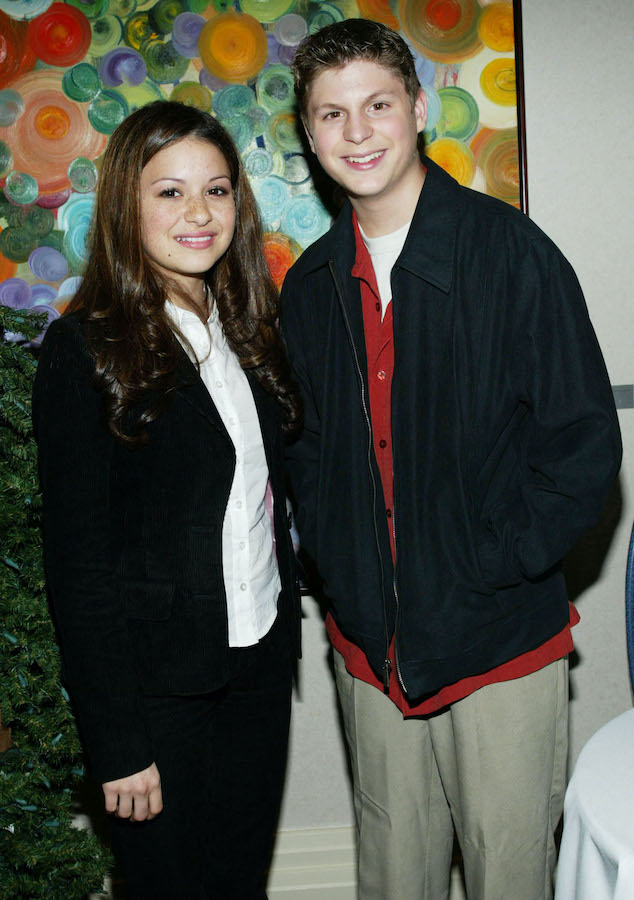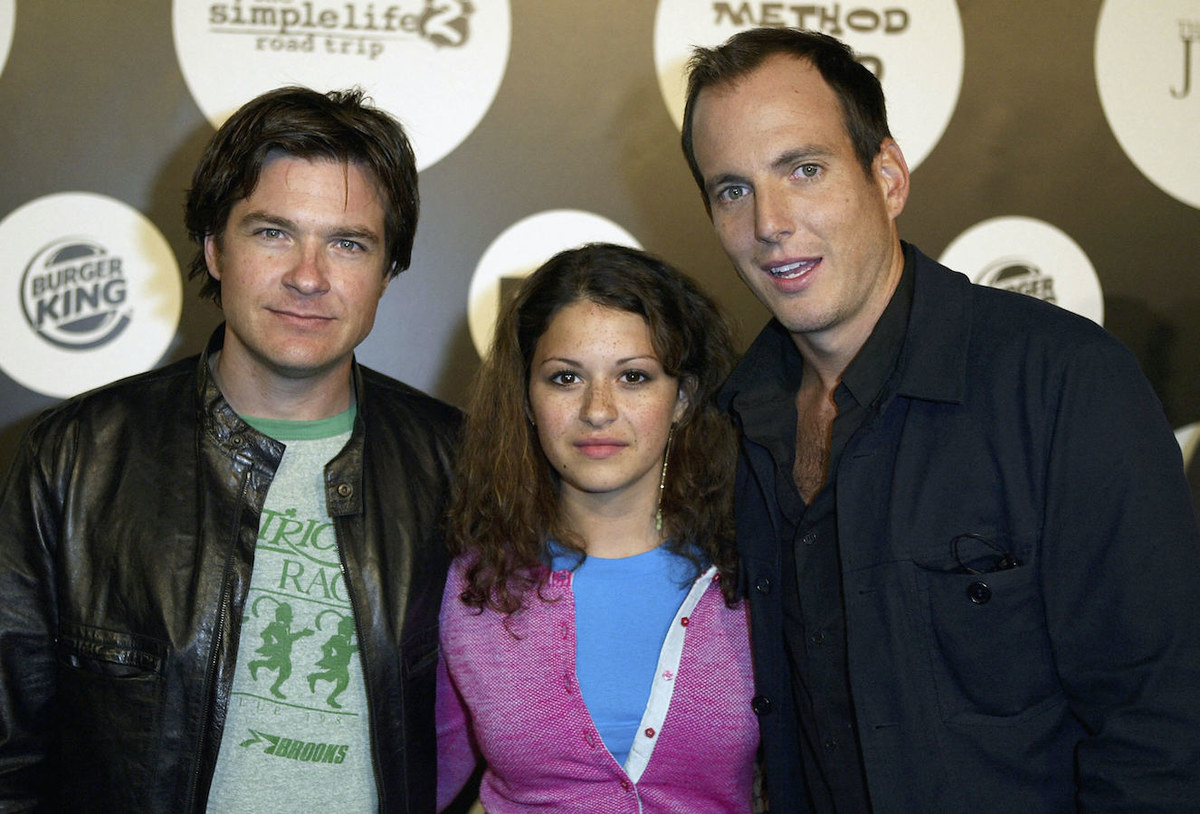Life Style: Germany’s documenta exhibition presents new perspectives on Arab art

DUBAI: If you never realized that Alia Shawkat has Arab heritage, there’s a reason for that: The Iraqi-American actress — who has been stealing pretty much every scene she has appeared in since 1999, when she was 10 years old — rose to fame at a time when Hollywood was much less receptive to non-white identities.
Now, though, the 33-year-old star is entering the next phase of her career, one in which her heritage will be front and center.
“It’s interesting, because when I started acting, I always had to say I was half-whatever the role was. I would say I was half-Spanish, or half-French, just trying to blend in. I was always seen as ‘too ethnic’ when I was young,” Shawkat tells Arab News. “Now my ethnicity is a strength, because the conversation is shifting. It’s funny to watch actors actually talk about where they’re coming from, or playing roles that they’re actually connected to, when I grew up having to basically hide it.”
Not that it ever slowed Shawkat down. While she is perhaps still best-known for playing Maeby Fünke on the acclaimed cult comedy “Arrested Development,” which also reinvigorated or launched the careers of Jason Bateman, Will Arnett, Michael Cera and Tony Hale, she has been an inimitable presence across dozens of acclaimed independent films, before becoming the star and a key creative voice in the series “Search Party” (2016-2022), a pitch-black comedy and noir crime drama hybrid that defines Shawkat’s unique spirit better than anything has thus far.
Post-“Search Party,” Shawkat is starring in “The Old Man” opposite John Lithgow and Jeff Bridges in the latter Oscar-winner’s first television role. It’s a gritty spy thriller helmed by “Spider-Man: No Way Home” director Jon Watts unlike anything she’s done before. The series, which premieres internationally this week, is set to hit Disney+ Middle East this fall, and has received dazzling reviews thus far.
“This is definitely new for me, genre- and tone-wise, and that’s something that drew me to it. I’ve never played someone who’s even gone to college, honestly. I’ve played to a different audience with younger issues that are interpersonal and usually manifest into comedy, which I really enjoy, but it was fun to take something that was a bit more cinematic and larger than my own personal references,” says Shawkat.

While comedy is so much about cultural timing, as what is funny now rarely stays that way, part of the appeal of “The Old Man” is that it had the fundamentals of a piece immune to those considerations, with great writing and directing, and some of the best actors in the world.
“Something that’s good, when it’s honest, last forever,” says Shawkat. “I’m just proud to be a part of something like that. It’s harder and harder to find scripts that really feel grounded in beautiful storytelling and don’t sacrifice anything. I’m incredibly lucky.”
Great scripts don’t always come across your desk — which is why Shawkat has been working on her own project that fully embraces and dissects her identity as an Iraqi-American. It’s a series called “Desert People,” which Shawkat is co-creating with Natasha Lyonne, the writer and star of Netflix’s “Russian Doll.” It’s about a family of Iraqi immigrants who run a club in Palm Springs with Shawkat starring as the family’s adult daughter living in Los Angeles and coming to terms with her identity as a first-generation Iraqi-American.

She didn’t have to search too hard to find inspiration for the show. “My father is Middle Eastern, and he owns a club in Palm Springs. So that’s the show,” she deadpanned to the New Yorker last fall.
On a serious note, Shawkat firmly believes that there is more work to be done than simply casting more diverse actors. That will be the driving force behind her own career moving forward.
“Obviously, representation is very important, but I think also changing the stories themselves is key. Stories are very important, obviously — that’s why we do all of this, right? Changing stories, changing ideas, of how people view Middle Easterners in general is very important,” Shawkat says. “The Middle East has got a really bad rap for a long time. I hope to always make things that are showing more truth behind the Middle East. I’m trying to be a part of that as much as possible and working more with Arabs in general. I want to go into the Middle East more.”
While “Desert People” will tackle that by putting Arab characters at its center, Shawkat took “The Old Man” in part because of the way that it, too, dives into righting some of the wrongs that were committed in the post-9/11 landscape.
“Americans have a complex relationship with the Middle East, which is something that ‘The Old Man’ talks about a lot. There have been a lot of lies, and this show explores correcting them. I think audiences are actually ready for that,” says Shawkat.
In her decades in the industry, Shawkat has also learned that even the quality of the material is secondary to who you execute it with, making her very conscious of her collaborators.
“I’ve learned to follow the good people, no matter what the opportunity or the size. Like, ‘These people seem good. Let’s stick around.’ You know? I want to work on good scripts and work with good people, and so far so good,” she says.
“Career questions are so funny,” she continues. “We all have different perspectives on our own careers where we feel like we’ve made it and then immediately feel like we haven’t done anything. But I’m at the stage where I’m trying to create my own show and — having done this since I was a kid — trying to have a little more control, a little more power. Whatever that is.”
With “The Old Man,” she got the chance to work with one of the most beloved actors working today, the 76-year-old Golden Globe, Emmy and Tony Winner John Lithgow. If she takes anything away from the experience, it will be Lithgow’s smiling face, conveying an energy she hopes to carry with her in the future.
“My boring answer is that he’s just, like, the best ever. He’s a wonder-human, and such a professional. I kept focusing on the fact that he’s still doing it at his age — after all the work he’s done and all the things he’s accomplished — with the most passion of anyone on that set,” says Shawkat. “I just thought to myself, ‘I can’t be in a bad mood. Ever.’ He would carry a scene with such weight and gravity and then when they yelled ‘Cut’ he’d completely drop it and say, ‘Did I tell you about this one time when I was in New York?’
“I learned from him that you don’t have to carry this pain with you in between takes. You can be available, spiritually, emotionally, and professionally, and still give it your all,” she continues. “We still email all the time because I miss him a lot. I hope I can bring that same energy moving forward, too.”
Noting that the news was copied from another site and all rights reserved to the original source.
xnxx,
xvideos,
porn,
porn,
xnxx,
Phim sex,
mp3 download,
sex 4K,
Straka Pga,
gay teen porn,
Hentai haven,
free Hentai,
xnxx,
xvideos,
porn,
porn,
xnxx,
Phim sex,
mp3 download,
sex 4K,
Straka Pga,
gay teen porn,
Hentai haven,
free Hentai,




